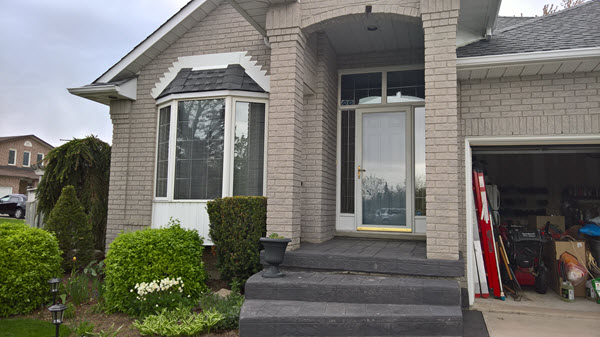Cost-Effective Solutions for
Fenestration Unit Upgrades and Purchases 
When shopping for replacement windows for a home, there are many
factors to consider in identifying the ideal units for the greatest price. In
Canada, fenestration units that meet Natural Resources Canada’s (NRCan)
specifications for energy efficiency are labelled with the Energy Star
qualification. Saving through energy efficiency is an effective way for
potential buyers to reduce costs in the long run through lower heating, cooling
and lighting costs. Attaining the highest level of energy efficiency can be
achieved by making informed decisions on window selections when making
purchases.
Reducing Costs through Energy
Efficiency
There are four factors that contribute to energy efficiency in windows:
- U-Factor: This is
the value overall heat transfer coefficient that captures how well the
fenestration unit conducts heat. It is calculated by the rate of heat
transfer in watts through one square metre of a structure divided by the
temperature difference. A high value represents poor thermal performance,
while a low level indicates good insulation.
- Solar Heat Gain
Coefficient (SHGC): This value refers to the window’s solar energy
transmittance, factoring in its various components.
- Air Leakage: This is
the value of airflow passing through a given fenestration unit. Air
leakage is differentiated by infiltration, which is the flow of air
entering a building, and exfiltration, which is the flow of air leaving
the building. Infiltration alone can amount to one-third of heating,
ventilation and air conditioning (HVAC) energy consumption in a typical
modern North American dwelling.
- Energy Rating (ER):
For vertically installed window units in low-rise residential buildings,
the ER is applied, and the value is calculated by balancing the above
three values.
While existing windows can be upgraded to improve overall energy
efficiency, it may not be the most economical solution for older structures. As
such, it is important to know which window designs and improvements are optimal
for a given structural environment. Every component of a fenestration unit
plays a role in achieving energy efficiency. Window frames conduct heat, which therefore
directly impact the frame’s U-factor. Glazing and glass specifications cater to
a variety of factors for optimal energy efficiency, including window styles,
unit orientation, climate and structural design.
Reducing Costs through Custom
Design, Manufacturing and Installation
Potential buyers can greatly benefit from providing their input at the
conceptual stage to ensure that their needs are met, as off-the-shelf
fenestration units may not accommodate all requirements. By customizing
fenestration units, homeowners can save on future repair and upgrade costs that
could otherwise incur from suboptimal windows. While rare in the GTA area, it
is strongly recommended that buyers purchase fenestration units from
one-stop-shop vendors in Guelph, Kitchener, Barrie, Niagara and Oshawa.
One-stop-shop solutions can offer potential buyers important knowledge about
their purchases as well as a sense of comfort, as they guide buyers from
conceptualization to manufacture, and lastly, to full installation. Typically,
design, manufacturing and installation are handled by different parties in the
industry, and, as such, vendors that operate as fenestration unit designers,
manufacturers and installers can offer services at comparably lower prices than
competitors who do not provide such solutions.
Trust Windows will provide a one-stop-shop solution to your needs.
Trust windows specialize in taking you from start to finish, providing in home
estimates, manufacturing of the windows and full installation.